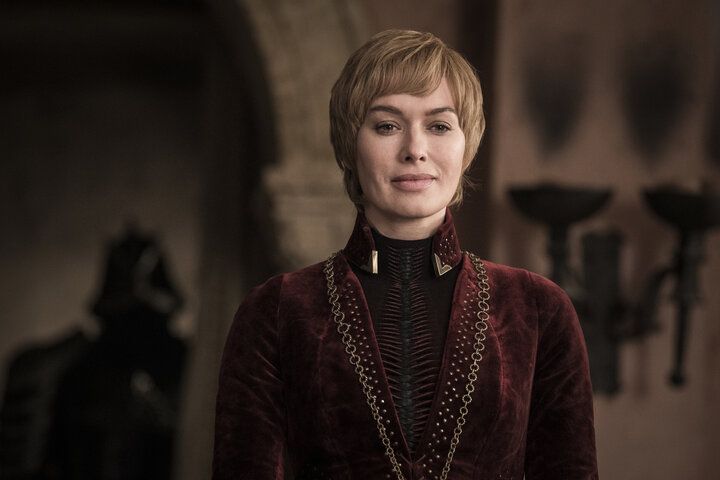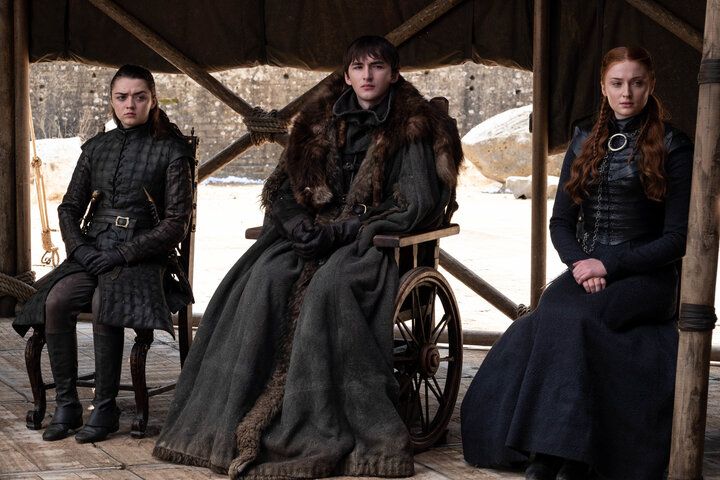Spoilers below! You’ve been warned.
Cersei Lannister, the villainous, unrelenting matriarch of King’s Landing, was only in four of the six episodes of the final season of “Game of Thrones.” And in one of those installments, she’s dead.
Yes, Lena Headey, an actor whose talent has proven limitless over this series’ run, was featured uttering a few words in 13 brief scenes of Season 8 ― a noticeable decline from Season 7, which saw her in 18 dialogue- and drama-filled moments.

It’s no hot take to say the final season of the HBO series wasn’t great. The story was rushed, and plot holes popped up left and right. For example, we’re led to believe most of the Dothraki die in the Battle of Winterfell, only to see them reappear in droves. And, somehow, Euron (Pilou Asbæk) and his fleet are able to sneak up on Daenerys (Emilia Clarke) at Dragonstone, killing her dragon Rhaegal with a giant crossbow. She was literally in the air and would’ve seen him.
To sum it up, the production side of things was truly astounding (give or take the odd coffee cup); the scripts were not. Showrunners David Benioff and Dan Weiss have been taking heat for their out-of-character narratives and twists ― like Daenerys’ “Mad Queen” turn ― and it could haunt them come Emmy season.
The duo penned the final four episodes of Season 8, and consulted on the other two episodes with writers Dave Hill and Bryan Cogman. And even though there were a few scenes that played out seamlessly, most of them fell into fan-service territory or just didn’t make sense in light of the prior seven seasons. The scripts were bit of a mess, which raises the question: Will this season of “Game of Thrones” even be nominated, let alone win, for Emmy categories that aren’t production-related? And were the actors given enough to work with?

“Game of Thrones,” based on George R.R. Martin’s epic fantasy book series “A Song of Ice and Fire,” premiered in April 2011 to mixed reviews. But the swords-and-dragons show garnered four Emmy nominations for its first season ― including both Writing and Drama Series ― and earned Peter Dinklage a win for his standout portrayal of Tyrion Lannister. From there, the show gained popularity, earning more and more acclaim, and hordes of viewers, each season. Season 5 took home four statues for Drama Series, Supporting Actor (Dinklage), Directing (David Nutter) and Writing (Benioff and Weiss), solidifying the show’s importance in the television landscape. It went on to take home the top prize for the following seasons as well, despite the scripts growing increasingly condensed and silly as the show moved beyond Martin’s books.
All in all, “Thrones” has won 47 Primetime Emmys and Creative Arts Emmys combined, making it the most awarded drama series in TV history.
With Season 8, there’s no doubt awards will be handed out to the behind-the-scenes teams whose visionary work is unmatched. Costumes, makeup and hairstyling, stunt coordination, sound, editing, special effects ― you name it, “Thrones” will most likely win it, especially for battle-focused episodes like “The Long Night” and “The Bells.” But depending on which episodes they put up for Emmy consideration, the actors may not fare as well.
Headey, for example, has stunned Emmy voters for years, earning four consecutive Supporting Actress nominations since Season 4. But as mentioned, she didn’t get much material to work with in Season 8, and therefore might not be recognized if HBO submits a Cersei-less episode. (“The Bells” would give her the best shot.) Emilia Clarke has also been singled out by the Academy of Television Arts and Sciences, earning three Emmy nominations as Daenerys Targaryen. Odds are she will receive another nod, as her performance in Season 8, despite the gutless writing, was commendable. She managed to turn our heroine bad in the brief timeline she was given ― a near-impossible feat ― and she did give a few rousing speeches in the series finale, “The Iron Throne.”
It would be nice to see Sophie Turner, Maisie Williams and Gwendoline Christie receive some love for their performances this season as Sansa, Arya and Brienne of Tarth, respectively. They all brought their A-game, especially Williams, whose storyline was chock full of action sequences this season. Christie’s Brienne knighting scene was also a highlight.
As for the men, surely Dinklage will receive another nomination ― if only for that tearful discovery in the finale. He never fails to deliver the goods as Tyrion, even if his lines have gotten weaker and weaker over the course of the show. Kit Harington, however, might have a harder time being selected. He did some solid work in the final episode as he reacted to Dany’s destruction, but the rest of the season didn’t service Jon Snow, who, uncharacteristically, seemed to be missing in action compared to others. Nikolaj Coster-Waldau could snag another nom for his portrayal of Jaime Lannister, but we can’t say we wouldn’t like to see Iain Glen (Jorah), Liam Cunningham (Davos), Kristofer Hivju (Tormund), John Bradley (Sam) and Jacob Anderson (Grey Worm) earn some accolades as well for their stellar supporting parts.
Apologies to Isaac Hempstead Wright. King Bran could’ve used a few more lines.

Still, the Academy has always been kind to “Game of Thrones,” and Season 8 should be no different. Bad writing be damned!
They’ll probably give the show’s final season the top prize in celebration of the entire series, like the Film Academy did with “The Lord of the Rings: The Return of the King” in 2004. But if shows like “Better Call Saul,” “Bodyguard,” “Killing Eve,” “Succession,” “Pose” and “Homecoming” are competitors, “Thrones” might just barely squeeze by and snatch the, er, throne.
Let’s face it, 13.6 million viewers sat down to watch the series finale this past Sunday, with over 5 million more people joining in for replays and early streaming. “Thrones” was a ratings force that will likely go unmatched as it closes out the era of peak, appointment television. We just pray the Academy doesn’t feel like it needs to praise the writing come July.
REAL LIFE. REAL NEWS. REAL VOICES.
Help us tell more of the stories that matter from voices that too often remain unheard.




















![[Book Review] The Blade Itself (The First Law Trilogy) by Joe Abercrombie](https://bendthekneegot.com/wp-content/uploads/2018/01/1516047103_maxresdefault-218x150.jpg)
















